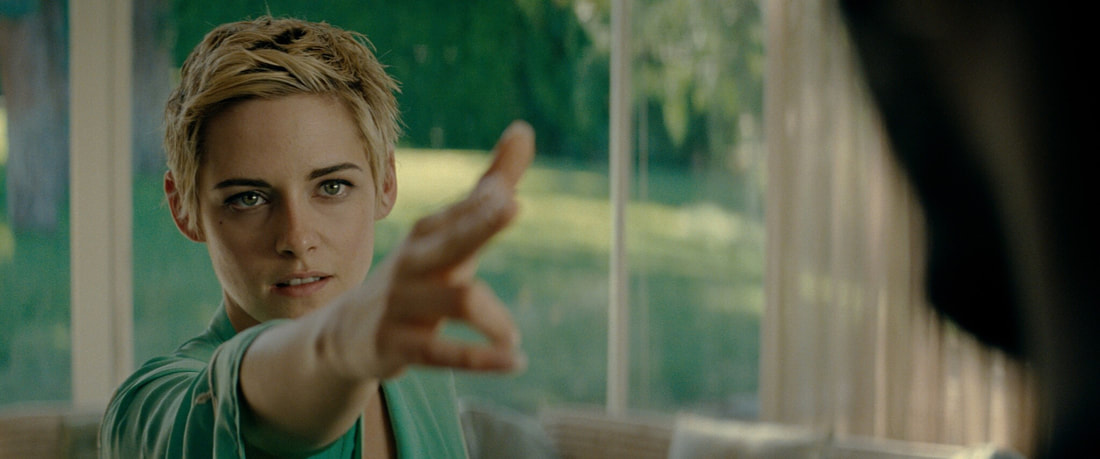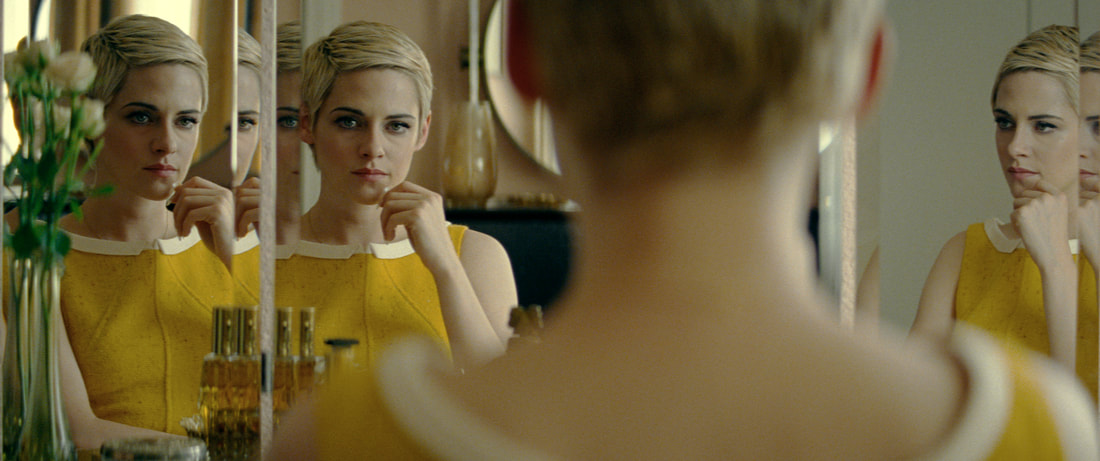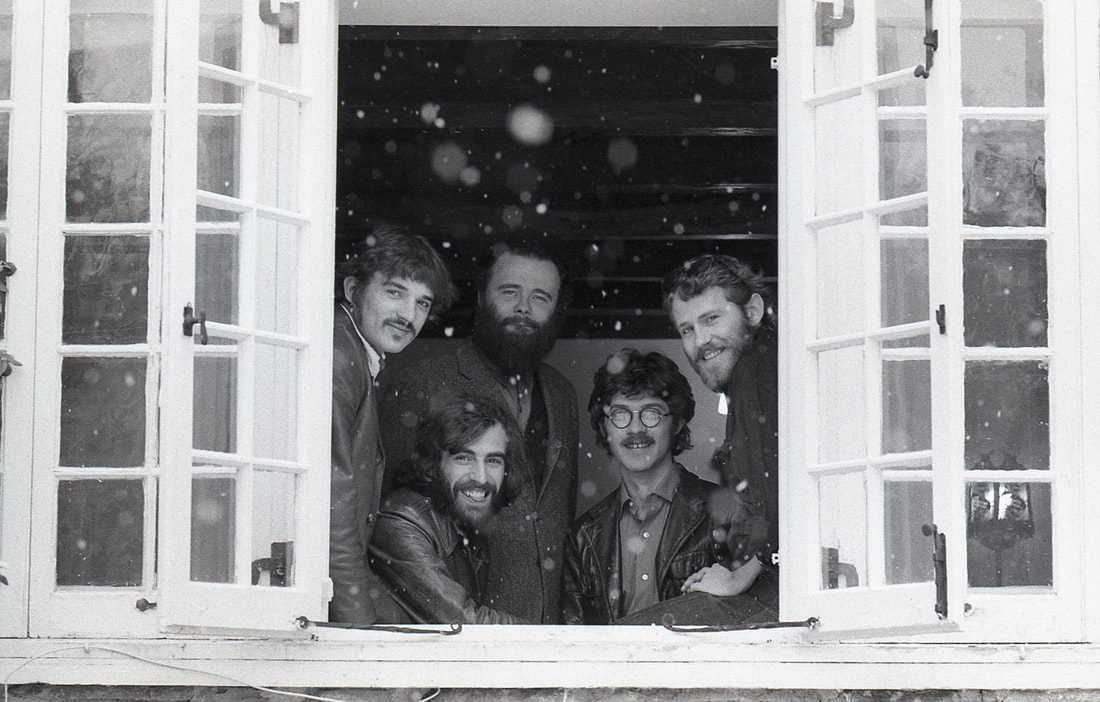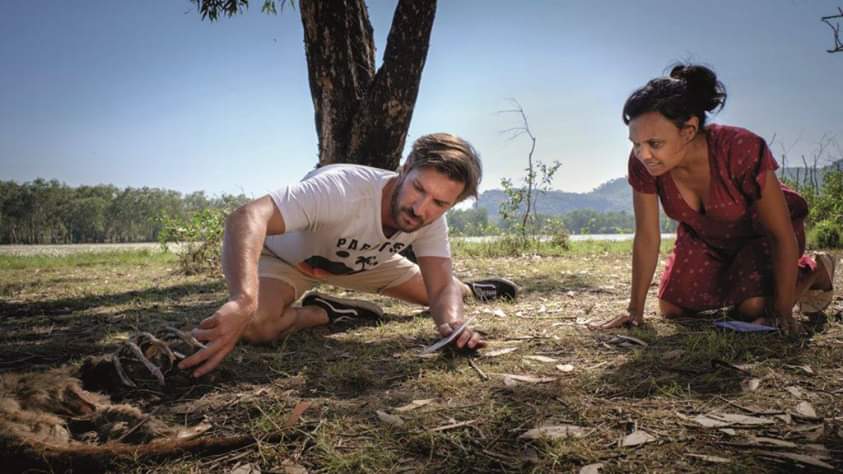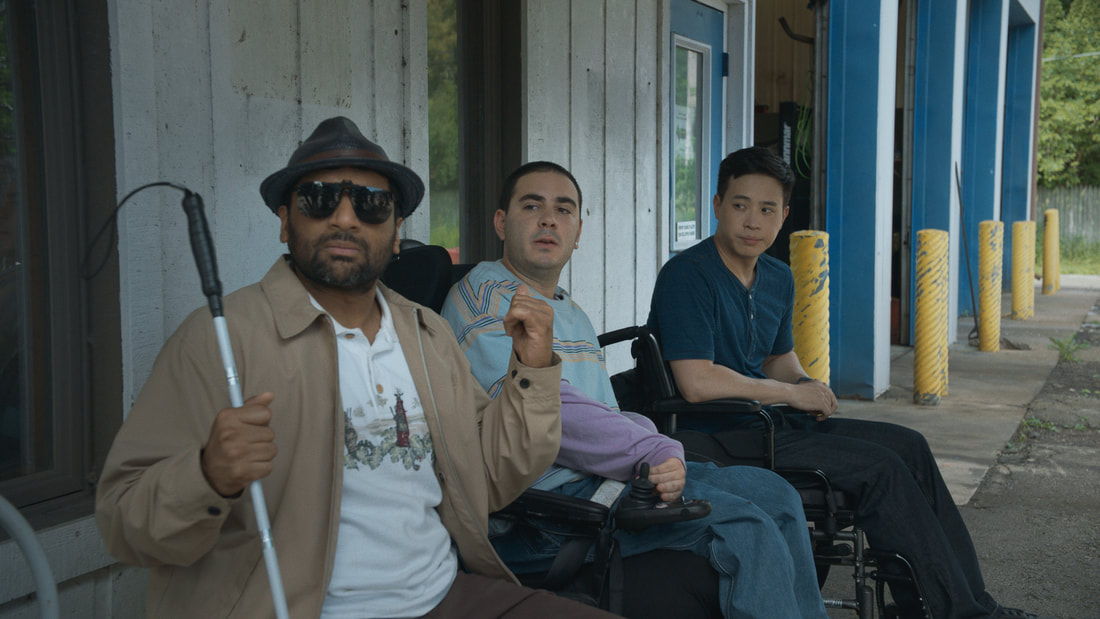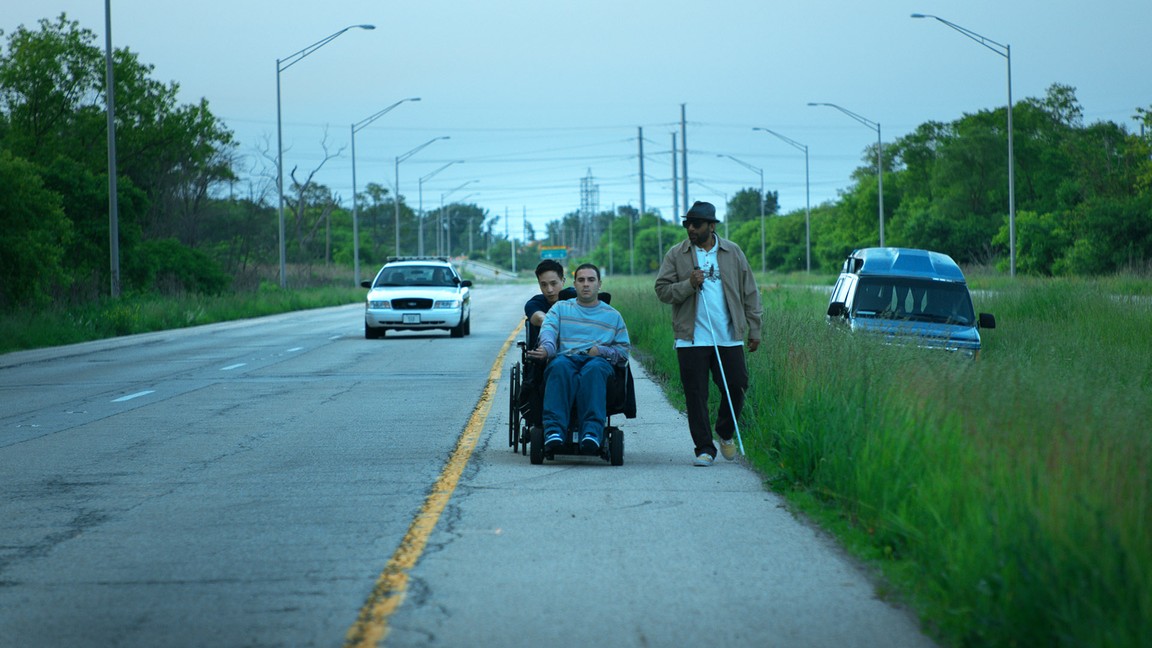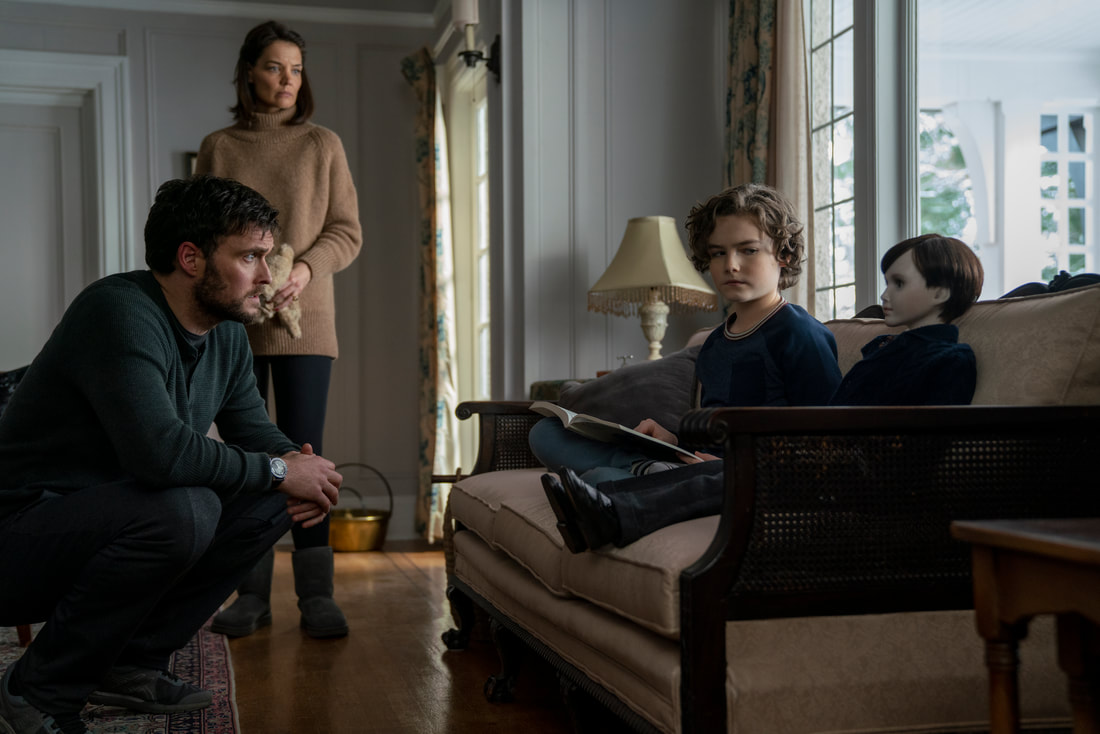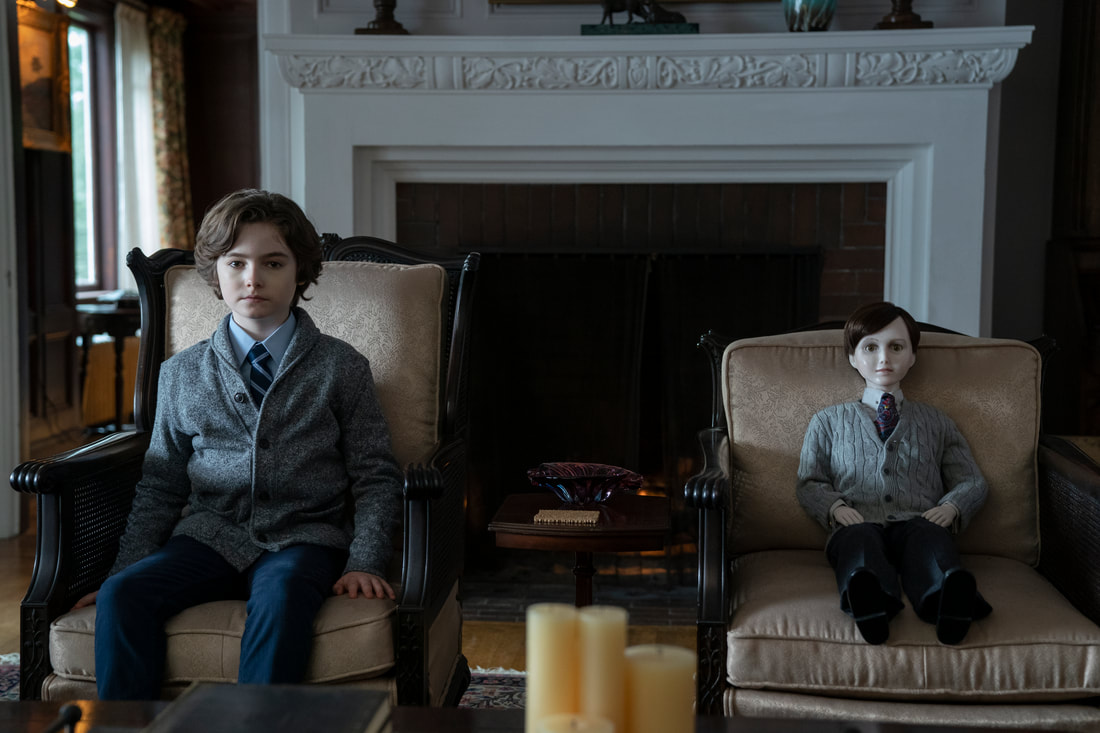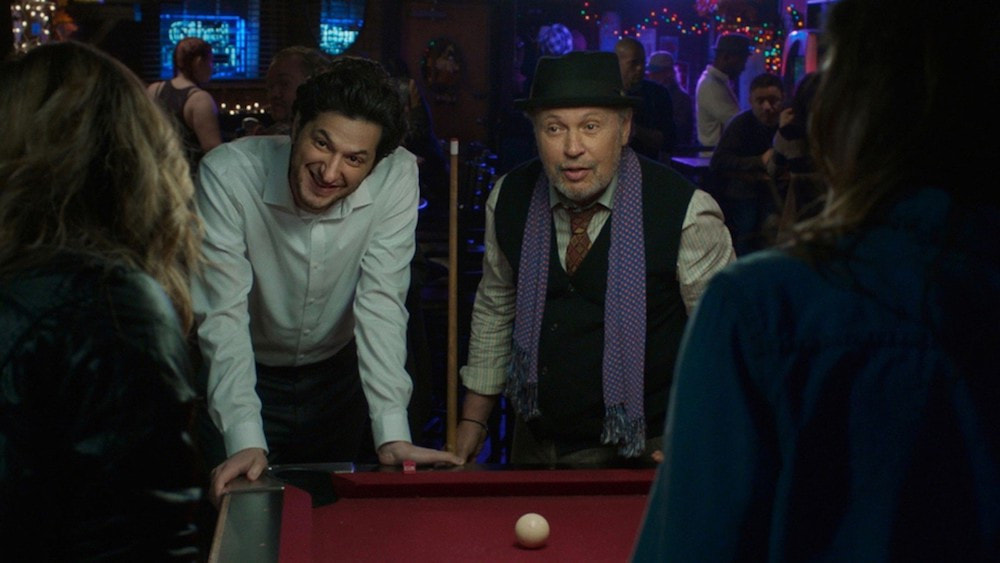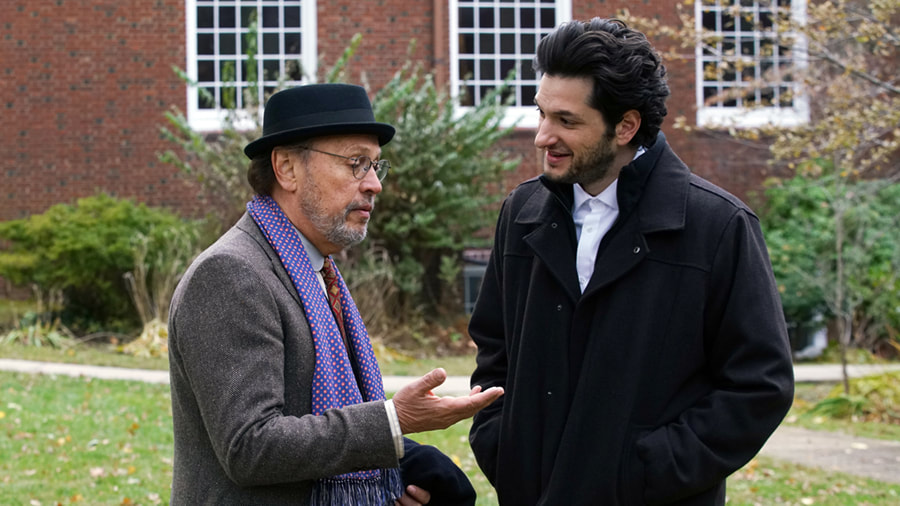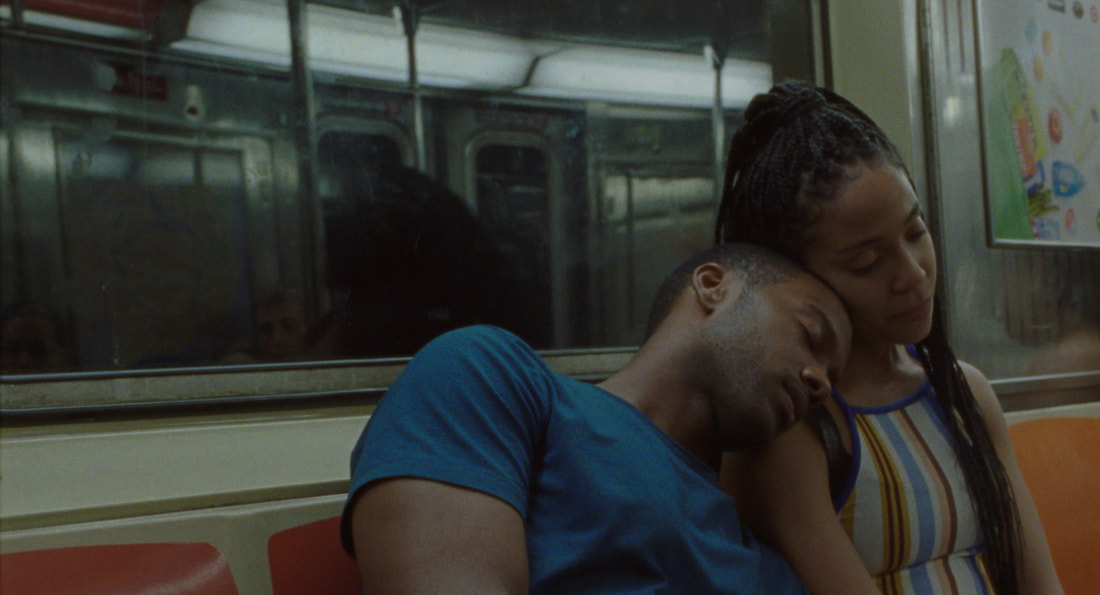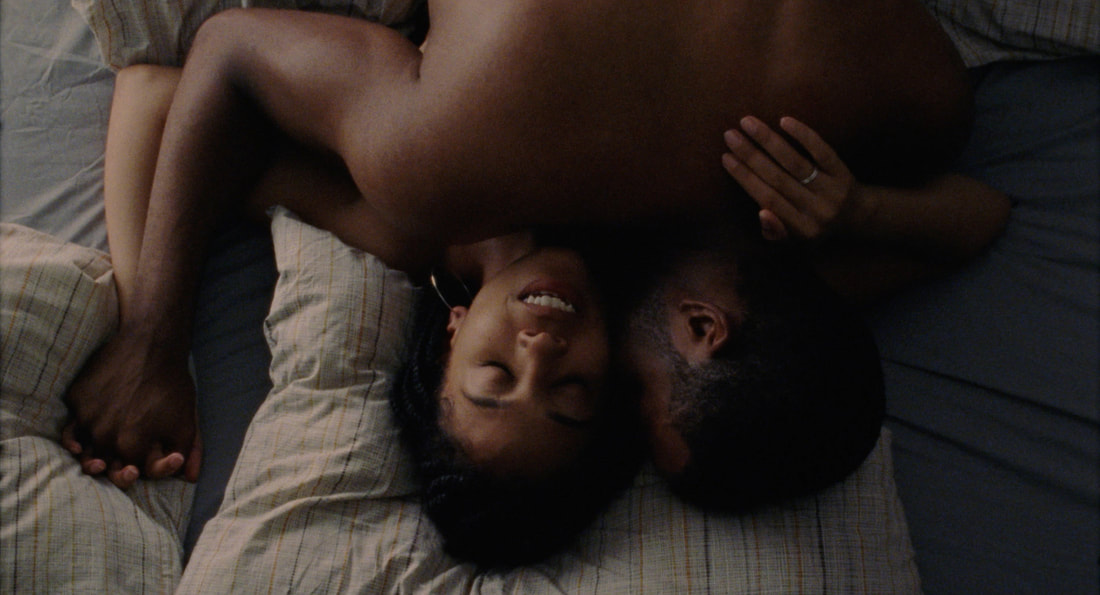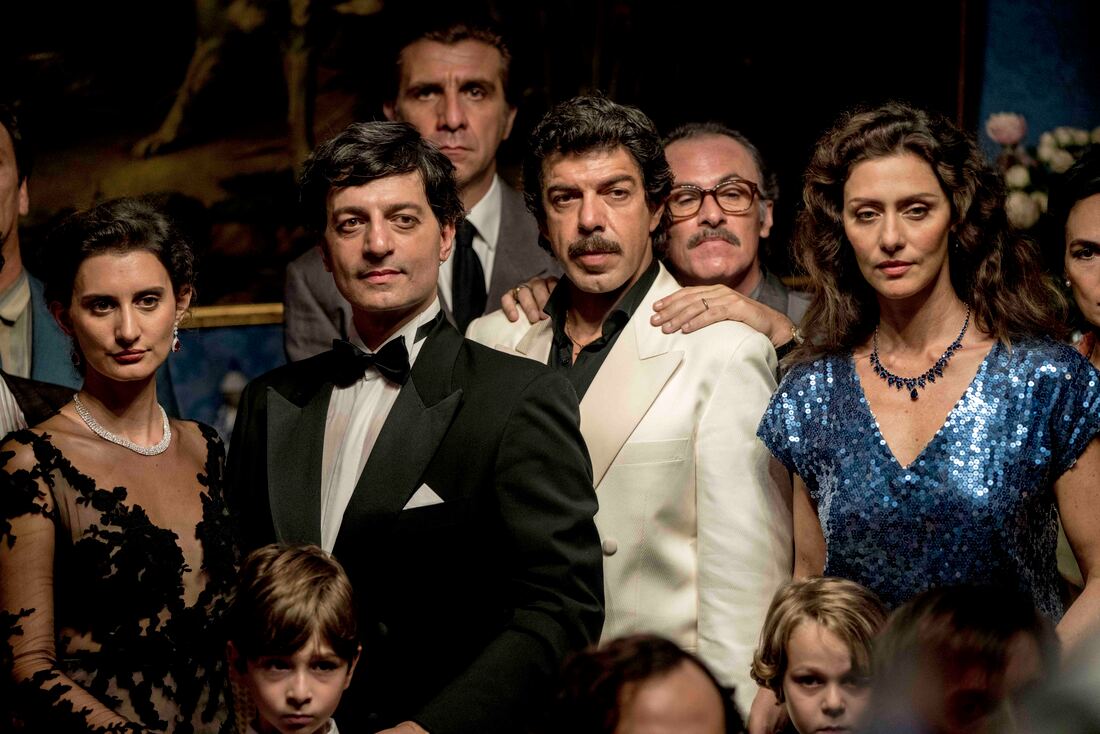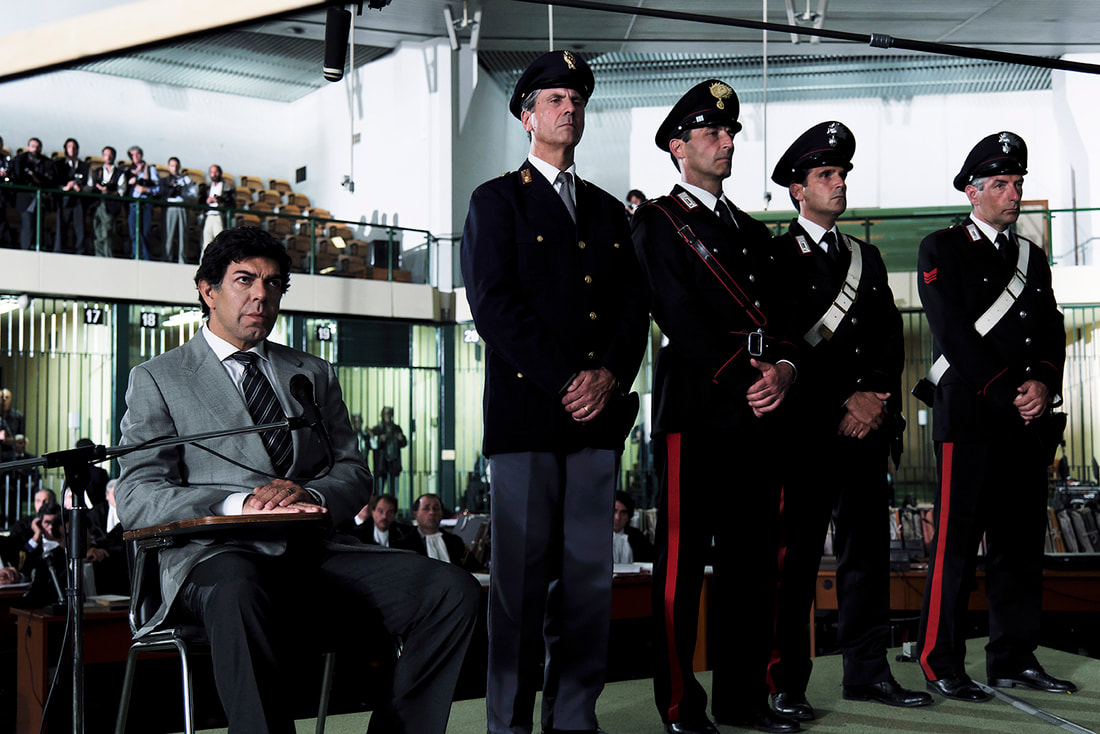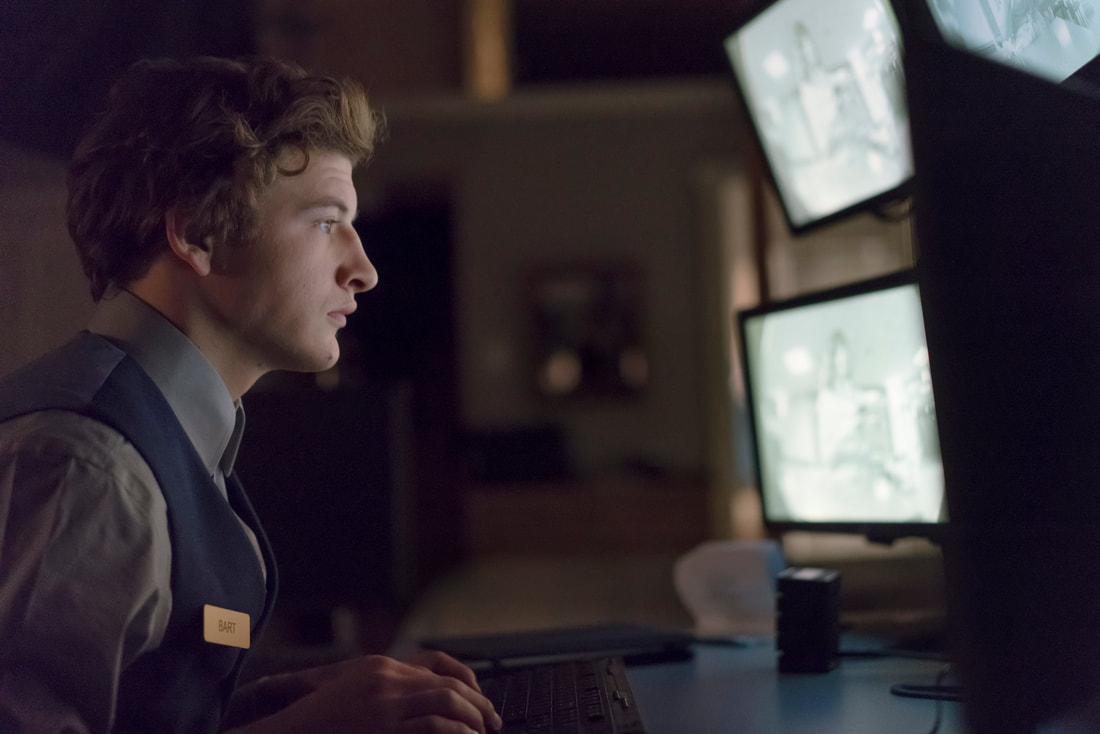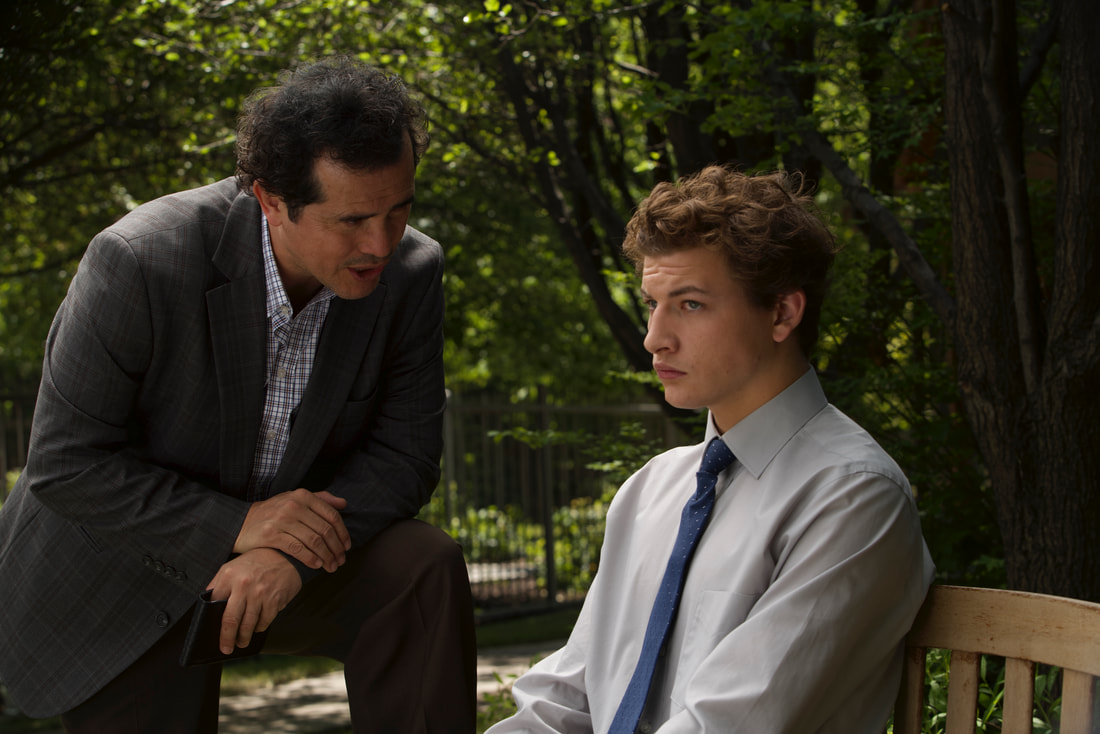|
Review by Sean Boelman Directed by Benedict Andrews (Una) from a script by Joe Shrapnel and Anna Waterhouse (Race), Seberg is a new political thriller inspired by true events in the life of French New Wave actress Jean Seberg. Perhaps a bit too sensationalized but still frequently riveting, Kristen Stewart’s phenomenal turn is likely to be the film’s biggest draw. The movie follows Seberg as she is targeted by the FBI for her relationship with civil rights activist Hakim Jamal. Unlike a standard biopic, Andrews’s film does not present the viewer with any new or revelatory information about its subject. Instead, the movie is much more superficial, playing out like a genre film more than anything else. Still, even if the movie doesn’t provide the level of insight for which fans of the actress may be hoping, it manages to be a mostly entertaining political thriller. With a very brisk runtime and a very cinematic story, Andrews is able to easily keep the audience’s attention. A few over-the-top moments do end up feeling excessively melodramatic, but there are plenty of other excellent moments to boot. Arguably the biggest mistake that the film makes is that it attempts to balance too many storylines. Had the movie focused exclusively on Seberg, her relationship with Jamal, and the effects it had on her personal life and career, the film would have been much more effective. However, the movie also contains an underdeveloped subplot about the FBI agent who is investigating her, and this is relatively distracting. It is obvious what Shrapnel and Waterhouse were trying to do with these parallel storylines — both Seberg and the agent are torn between their professional obligations and what they believe in their hearts to be right — yet there simply isn’t enough time for this other character to be explored. The biggest disappointment of the film is that it had the potential to make an extraordinary political statement, but this bite just fizzles out.
That said, Kristen Stewart gives an excellent performance as Seberg. Unlike many actors who play other actors, Stewart isn’t simply doing an impersonation (although the recreations of some of Seberg’s footage are pretty stunning). Despite the scripts many shortcomings, it does give Stewart plenty to work with on an emotional level, so it’s really a shame that she wasn’t campaigned harder this awards season. Andrews also does a very good job on a technical level. The use of color in the movie is amazing and does a great job of transporting the viewer back to the era in which the film was set. Additionally, Andrews is able to build suspense over the course of the movie, playing into Stewart’s convincing portrayal of paranoia to create a feeling of anxiety. Seberg may not offer the best possible version of this story, but it is inarguably very entertaining. Thanks to an excellent lead performance and some solid execution, this film is much better than some would have you believe. Seberg is now playing in theaters. Rating: 4/5
0 Comments
Review by Sean Boelman 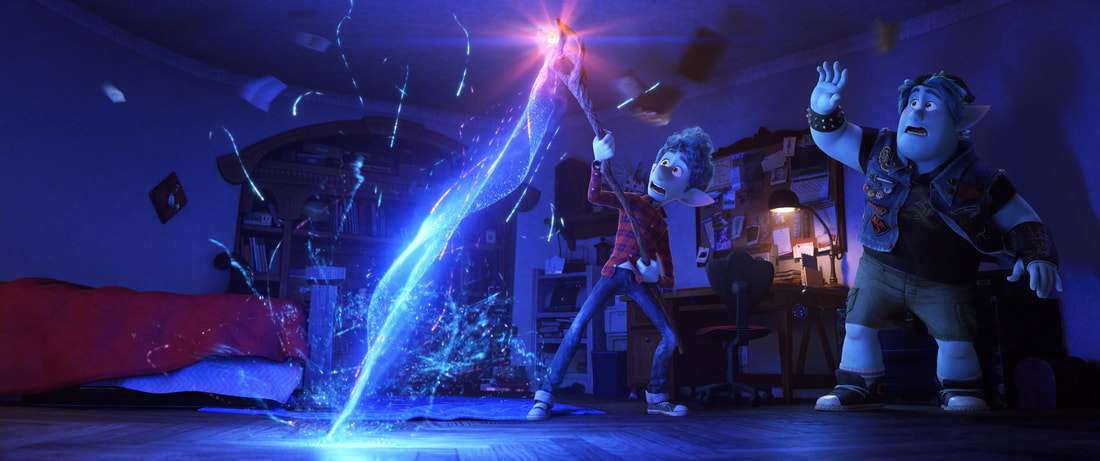 In Disney and Pixar’s “Onward,” brothers Ian and Barley Lightfoot (voiced by Tom Holland and Chris Pratt) are given a special gift from their late father on Ian’s 16th birthday. But when an accompanying spell meant to magically conjure their dad for one day goes awry, they embark on a quest fraught with some of the most unexpected obstacles. Directed by Dan Scanlon and produced by Kori Rae, “Onward” opens in U.S. theaters on March 6, 2020. © 2019 Disney/Pixar. All Rights Reserved. The newest film from highly acclaimed animation studio Disney-Pixar, Dan Scanlon’s movie Onward offers a blend of fantasy adventure, coming-of-age comedy, and family drama. Arguably the studio’s most ambitious film to date, this may not have much of an impact on the youngest of viewers, but will undoubtedly resonate with older kids and adults who see it. The movie follows two brothers as they go on a quest to find a mythical gem that will allow them the opportunity to bring their father back to life for 24 hours and see him one last time. Like any Pixar film, Onward hits the typical beats of its genre pretty consistently, albeit with a bit of a self-aware twist. The quest itself is rather predictable, but there is still plenty of fun to be had along the way. Perhaps the most successful part of this movie is its world-building. The film is built around the ingenious concept of bringing the world of fantasy and magic into the modern age of technology. This results in some absolutely hilarious bits, like one involving a pawn shop, and a recurring gag about driving. Some of these jokes (many of which are the movie’s funniest) will likely fly go kids’ heads, if only because they haven’t experienced these things for themselves, but will give their adult companions plenty to laugh at. Of course, this detailed world comes hand-in-hand with the excellent animation that the film has to offer. Among Pixar’s recent original efforts, it may not be as gorgeous as Coco or Inside Out, but it still does a very good job of immersing the viewer. The way in which fantasy and realism is blended is often awe-inspiring thanks to the tremendous effort put in by the animators.  When teenage elf brothers Ian and Barley Lightfoot (voices of Tom Holland and Chris Pratt) get an unexpected opportunity to spend one more day with their late dad, they embark on an extraordinary quest fraught with some of the most unexpected obstacles. Disney and Pixar’s “Onward” opens in U.S. theaters on March 6, 2020. © 2020 Disney/Pixar. All Rights Reserved. If the movie does struggle in one area, it is that it ultimately bites off more than it can chew thematically. While the film does come together very nicely by the end, there are still a few things that don’t get explored completely. Many of the things that feel like loose ends come from the subplots and side characters in the story, some of which had the potential to be much more.
That said, the main emotional arc of the movie — the protagonists trying to reconnect with their father — is very compelling. In typical Pixar fashion, audiences can expect to leave the film a bit teary-eyed, if not bawling hysterically. Still, the emotion in this movie feels much more earned than that in some of the studio’s lesser efforts. The voice cast in the film is also very strong. Tom Holland and Chris Pratt have great chemistry together and do a nice job of leading the movie, but more often than not, it is the supporting cast that steals the show. Mel Rodriguez is absolutely hilarious as a centaur police officer, and Octavia Spencer is great as a mythical hybrid beast that the protagonists encounter on their quest. Everyone in the cast gets their moment to shine, and the film is all the better for it. Onward does have a few areas in which it could have used improvement, but it is still of the quality one would expect from Disney-Pixar. Because of the nature of the story and humor, this one will probably be appreciated more by the over-ten kids, but there is still plenty to enjoy for the whole family. Onward opens in theaters on March 6. Rating: 4.5/5 ONCE WERE BROTHERS: ROBBIE ROBERTSON AND THE BAND -- A Safe but Enjoyable Rock Documentary2/21/2020 Review by Sean Boelman Once Were Brothers: Robbie Robertson and The Band is a new music documentary inspired by Robertson’s memoir Testimony. Despite generic execution from director Daniel Roher, the film is very memorable because of its fascinating story. The movie tells the story of Robbie Robertson, the beloved songwriter and former lead guitarist of classic rock group The Band. Focusing almost exclusively on Robertson’s musical career, the film plays out similarly to a lot of other rock docs, but if one is a fan of the era of music in which Robertson and his group were most active, this is sure to be an entertaining watch. At times, the movie does start to feel a bit repetitive, but that is also partially because the film fits a tried-and-true formula to the tee. Still, if the viewer gets invested in Robertson’s rags-to-riches tale, the movie moves along at a solid pace. Even if the film doesn’t have the depth or impact it could have, it is still an entertaining and informative biography. One of the film’s greatest strengths is paying tribute to Robertson and making the viewer admire his creativity and hard work. The movie shows Robertson’s rise within the context of the genre of music to which he contributed, allowing the viewer to understand the tremendous impact he had on the industry. One almost wishes that the film had done more with the other members of the group, but this is more Robertson’s story than The Band’s story. The movie tells its story through some pretty compelling interviews. Of course, a majority of the film’s material comes from Robertson himself, which is understandable given that the movie is inspired by his memoir. It is frequently fascinating to hear him talk about his own life. Other interviewees include such notable figures as Bruce Springsteen, Bob Dylan, and Eric Clapton.
As is the case with most music documentaries, the soundtrack is excellent, being filled with great music from the film’s subject, but more easily could have been done with the music. Something that was largely missing from the movie was performance footage. The music was more often used as a supplement to everything else than a medium in its own right. Visually, Roher’s film is cohesive and competent, if safe and by-the-book. The interviews are well-composed and incorporated effectively. Much of the rest of the movie is told through archive photos that are accompanied by the voiceover narration from the interviews. While this is enough to keep the viewer invested, a bit more variety would have been appreciated. Once Were Brothers: Robbie Robertson and the Band works because of its fascinating story, but there is a lot more that could have been done. Perhaps with a bit more stylistic ambition, the film could have been even more successful. Once Were Brothers: Robbie Robertson and the Band is now playing in theaters. Rating: 3.5/5 Review by Sean Boelman Directed by Wayne Blair (The Sapphires), Top End Wedding is a cute new romantic comedy told from a fresh and unique perspective. A bit overlong but still mostly entertaining and often very adorable, even if the plot of the film itself is formulaic, there is much more substance to this than most movies of the genre. The film follows a recently-engaged couple that have decided to get married in a hurry, only for their plans to be thrown askew when the bride-to-be’s mother goes missing, sending them on a search to find her and themselves. Ultimately, as is the case with many rom-coms, the direction in which the movie is heading is immediately obvious, but there is still plenty to enjoy in the script. The only thing that works against this film is lackluster pacing. Although there are enough laughs to be found to keep the movie moving, this story could have been told more effectively in a mere ninety minutes instead of the extended runtime it is given. The film particularly loses its luster in the third act. What could have easily been the emotional crux of the movie is instead extremely underwhelming. That said, the character development in the film is relatively strong. Thanks to the focus on her indigenous background, the protagonist is a very compelling and interesting character. Her love interest isn’t as well-written as she is, but the rest of the supporting characters offer some solid subplots, even if they aren't fully explored. On a thematic level, the movie is all about the protagonist trying to find her identity. Her quest to find her mother mirrors her mother’s quest of self-discovery, allowing the film to explore the indigenous culture at the center of the story. Since the movie comes from this underrepresented angle, it manages to stand out despite the otherwise run-of-the-mill story.
The cast of the film is also very strong. Miranda Tapsell, who also co-wrote the script, obviously has a great deal of passion for this role, and it is infectious. Her comedic delivery is excellent and she does a solid job of handling the emotional moments as well. Additionally, she has very good chemistry with co-star Gwilym Lee, who is charming on his own merits. In terms of execution, the movie is mostly fine, although also conventional. It’s somewhat disappointing that the filmmakers didn’t end up doing more with the setting with which they were working. It isn’t often that a film like this is set in the Aboriginal lands of Australia, so it would have been nice to see more done with this. Still, the movie is entirely competent. Top End Wedding is a likable romantic comedy, and despite its issues, there are a lot of really good things happening in it. This film is absolutely worth checking out thanks to the unique perspective from which it is told. Top End Wedding is now available on VOD. Rating: 3.5/5 Review by Camden Ferrell Come as You Are is a comedy film that had its premiere at the 2019 SXSW Film Festival. This movie was directed by Richard Wong and written by Erik Linthorst. While this movie is entertaining and heartwarming, it sometimes loses its momentum and misplaces its humor. This movie is about three men with disabilities who are driven by a nurse on a road trip. Their goal on this trip is to go to a brothel just past the Canadian border so they can lose their virginity. This is a unique concept even if it sounds a little questionable at first. However, it is refreshing to see a movie that is populated with so many characters with disabilities. Linthorst’s script is mostly pretty decent. It does use a lot of low-ball humor and sexual jokes to drive its plot, but that is the nature of most of the movie. Considering this movie is a remake of the Belgian film Hasta La Vista, Linthorst did a fairly good job of adapting it for American audiences. It has lots of charm even if its jokes don’t always land the way they’re supposed to. The acting is very good throughout. Grant Rosenmeyer (The Royal Tenenbaums) leads the cast including Hayden Szeto (The Good Place), Ravi Patel (Meet the Patels), and Gabourey Sidibe (Precious). Rosenmeyer does a great job with his character’s unfiltered and brutally honest remarks throughout. His timing is both awkward and funny, and he demonstrates great chemistry with the cast. Szeto and Patel also do a good job at developing their own unique styles of comedy that make this road-trip comedy fairly enjoyable. One of the flaws with this movie is how its main cast doesn’t have any disabilities in real life. While it is the duty of the actor to act, it is disheartening to learn in a movie that is about overcoming disability and adversity, those who actually have disabilities were not used to act in the movie. Representation is an important part of filmmaking, and I wish it was handled a little bit better in this movie. It’s a problem that isn’t present unless one recognizes the able-bodied actors.
Despite this, the movie does have some nice heartwarming messages about friendship and self-acceptance. It’s often crass, but the movie does have some sweeter and more solemn moments that make it special. It’s nothing new or highly exciting, but it’s a wholesome message that people can get behind. There are times where the movie lingers too long or overstays its welcome, and it can sometimes be off putting. Luckily, the strong cast and fair script are able to correct its shifts in momentum with enough ease to make its shortcomings mostly forgivable. There are a lot of ways this movie doesn’t reach its potential, but it’s a mostly harmless and enjoyable road trip movie. Come as You Are does not break new ground, but it’s a fun movie about disability and friendship. It has some tender moments to balance out its crude and lewd humor. While it is flawed on many fronts, the movie is ultimately passable. Come as You Are is now available on VOD. Rating: 3/5 Review by Sean Boelman The long-gestating sequel to 2016’s moderately successful modestly-budgeted horror flick, Brahms: The Boy II is proof that not everything that makes money needs a sequel. Taking everything that was intriguing about its predecessor and ignoring it, this film offers precious little, even for the most easily satisfied of moviegoers. The movie tells the story of another family who comes into possession of the eponymous life-like doll, soon coming to suspect that it is having a sinister influence on their young son. Whereas the first film plays out like a psychological thriller with some obligatory jump scares, this droll sequel feels like a studio-mandated horror cash grab that couldn’t even be bothered to make an effort to build suspense. There are a few very strong sequences in the movie, particularly in the beginning, as the script sets up a very compelling story about trauma in the first fifteen minutes, only to go in a very different direction for the rest of the film. There’s a good movie in there somewhere, but it needed a rewritten third act and some more exploration of its themes. Perhaps the most disappointing thing about this movie is that it feels like a completely different film than the original. Although the events of the first movie are recapped (multiple times) through expositional dialogue, they are written off and explained away for the sake of convenience. As a result, any hope of originality goes out the window and this becomes just another killer doll movie. Believe it or not, this film actually features some surprisingly decent character work, and this is the only thing that allows the movie to be watchable. The time before the doll is introduced is well-spent, attaching the viewer to the characters and creating urgent justifications that will come to be important later on in the story. Unfortunately, this is little more than a foundation, as there isn’t much of an arc to be found.
Katie Holmes is the lead of the film, and while she is obviously trying her best, even that is not enough. She simply isn’t believable in the role because her delivery is lackluster and often emotionless. In his supporting role, Ralph Inesson is the only performer who does anything memorable, but that is because he is so often over the top. Perhaps it is due to studio intervention (it is easier to explain it that way than a loss of passion between the movies), but this film feels much more sloppy and chaotic than the first one. It frequently feels like there are multiple different movies happening at the same time, and the result is very disorienting. It is almost shocking that this was made by the same team as the original because it feels so much more soulless. The Boy was arguably one of the better PG-13 studio horror flicks of the last decade, but Brahms: The Boy II is a near total waste of time. Apart from two or three solid scenes, nothing about this film is particularly scary, and the dramatic material is full of wasted potential. Brahms: The Boy II is now playing in theaters. Rating: 1/5 Review by Sean Boelman Directed by Matt Ratner from a script by Peter Hoare, Standing Up, Falling Down is a charming new dramedy brought to life by a superb cast. Featuring a career-best turn from Ben Schwartz and a memorable bout from Billy Crystal, the script may be a bit conventional at times, but it is packed with funny and endearing moments nevertheless. The film follows a struggling stand-up comedian who returns to his hometown, where he befriends a charming alcoholic dermatologist, allowing both of them to learn something about themselves. The main arc of the movie is relatively safe and Hoare ultimately doesn’t bring anything particularly new to the table in relation to these themes, but the emotions in the film still ring very true. As a whole, the movie is very entertaining. As one would expect with the main character being a stand-up comedian, jokes are cracked throughout. Perhaps most impressive is that the film manages to deal with some of these serious topics, like alcoholism, in a way that is humorous but still feels completely respectful and justified. At times, it does feel like the movie bites off a bit more than it can chew thematically, but this is largely because of the fact that it is trying to balance two bulky storylines, each of which has a great deal happening in it. Some of the film’s ideas, such as those approaching family and regret, are very interesting, while others, like one involving the idea of legacy, don’t entirely pan out. Arguably the main reason why the movie is so effective is that the character development is so strong. Even though both of the lead characters have a laundry list of flaws, they are compelling because of the friendship that forms between them. Undoubtedly the best moments in the film are those that allow the two leads ample time to bounce off of each other, as these are often the funniest (and sometimes heartfelt) scenes.
Of course, this wouldn’t have been possible without the phenomenal chemistry between the two stars Schwartz and Crystal. Until this point, Schwartz has been known primarily as a (very funny) background player, but this movie proves that he has the chops and range to lead. Crystal is an absolute legend, and it is amazing to see him on screen again (in a role worth his talents). On a technical level, the film does lean a bit too heavily into the sentimentality of the genre, particularly in relation to the score and cinematography, although the script and cast are able to prevent the final product from feeling overly maudlin. The focus of the director here is on the performances, and rightfully so, as this story does not require flashiness. With Standing Up, Falling Down, director Matt Ratner and writer Peter Hoare have delivered an entertaining and thoughtful drama, even if it follows a well-worn formula. Billy Crystal and Ben Schwartz’s performances alone make this movie worth the time, and at only ninety or so minutes, it’s a quick and breezy watch. Standing Up, Falling Down hits theaters and VOD on February 21. Rating: 4/5 Review by Sean Boelman Winner of the “Someone to Watch” Indie Spirit Award, Rashaad Ernesto Green’s second feature Premature is a summer romance film from a unique and fresh perspective. However, despite good intentions and frequently gorgeous visuals, the movie never quite comes together in the way that Green seems to have hoped. The film follows a teenage girl in the summer before she leaves for college as she meets a handsome and mysterious stranger, sending her on a journey of self-discovery. Green’s take on the summer romance is far from conventional, and while this is often a good thing, the idiosyncrasies of the movie can also prevent the story from connecting as intended. Part of the issue with the film is that it feels somewhat repetitive. There are short bursts of conflict interspersed throughout Green’s portrait of this relationship, and while that is just enough to keep the viewer invested in the story as a whole, it isn’t enough to keep those other portions of the movie from feeling like they drag significantly. The film does a good job of making the protagonist feel compelling, but the rest of the characters in the movie are disappointingly underdeveloped. Even the film’s love interest feels shallow. Green goes a bit too far in making the love interest mysterious, instead making him feel cold and distant, and as a result, making the relationship feel less compelling. Eventually the movie does pack a pretty strong punch, especially towards the end, but it takes quite a while to get to that point. Significant events in the first two acts of the film don’t have the urgency that is necessary for a movie like this to be fully effective. There are some brilliant and moving moments, but these glimmers of greatness only make the rest of the film even more of a let-down.
That said, Green did an absolutely phenomenal job behind the camera. Lead actress Zora Howard (who co-wrote the movie) is wonderful. Her performance was packed with emotion, and she obviously cares very deeply about this story. The chemistry she has with Joshua Boone is also very strong and works well to bring this relationship to life. Additionally, the film is quite visually impressive. Green undeniably has a great eye, making the look and style of the movie inarguably its strong suit. The cinematography by Laura Valladao is beautiful, capturing the emotion and subtlety of the actors quite well. The soundtrack of the film is very interesting as well, including the score by Patrick Cannell and Stefan Swanson. It is understandable why Rashaad Ernesto Green won a “Someone to Watch” award for his movie Premature, as his abundance of talent is evident, but the script of the film is ultimately what is holding it back. Still, Green has a phenomenal voice, and his movie deserves to be seen. Premature hits theaters and VOD on February 21. Rating: 3/5 Review by Sean Boelman Co-written and directed by acclaimed Italian director Marco Bellocchio, The Traitor is a new epic crime saga in the tradition of The Godfather. However, despite a thoroughly entertaining and juicy script inspired by true events, uneven (and often mediocre) execution causes this film to be frustrating more often than not. The movie tells the story of Tommaso Buscetta, the first Sicilian mafia informant in the 1980’s, whose testimony helped bring down the Cosa Nostra. The film traces Buscetta’s journey from trusted soldier in the family to widely loathed traitor, starting with his exile in Brazil through his groundbreaking court appearances. The result is a sprawling saga reminiscent of the great gangster and mafioso pictures of times past. Still, because of the lack of restraint executed by Bellocchio, the movie fails to be much more than a diverting flick. The first hour or so of the film is particularly messy, featuring some inexplicable directorial choices from Bellocchio to go along with the chaotic narrative. Eventually the movie does find its narrative and stylistic rhythm once it gets to the meat of the story, but it takes quite a while to get there. The film begins in a stylish manner, introducing the viewer to the large cast of characters in a large “family” photo, the flashes of the camera illuminating the various players that will come to have a small or large part in this tale. This is only the start of the cool but gimmicky and unnecessary flourishes like a ticking clock presented on screen (what it is counting is never made clear) and excessive use of on-screen text. Even beyond these gimmicks, though, is a slew of stylistic issues that lend no sense of visual coherence to the movie. The cinematography, while sometimes creative, more often has the quality of a TV show than that of a grand crime epic. The score is also entirely overbearing and frequently feels out-of-place compared to the darkness of the events being depicted.
Admittedly, the film can’t be faulted for a lack of ambition, but many of the movie’s ambitious swings end up being misses. As a result, the film ends up feeling like a waste of a fascinating true story. Buscetta is an undeniably fascinating and mysterious character, and his story is often riveting, hence why it deserves a much better treatment than the one Bellocchio gave it. Inarguably the biggest highlight of the movie’s execution is Pierfrancesco Favino’s performance as Buscetta. The sole provider of subtlety and nuance in an ensemble that is otherwise over-the-top, Favino is the only person keeping this script from going off the rails and veering into cheesy and melodramatic territory Apart from a few first act troubles, the script of The Traitor is very good (sometimes even excellent). That said, director Marco Bellocchio executes a bit too much creativity at times, allowing the film to spiral out of control to the point of no return. The Traitor is now playing in theaters. Rating: 3/5 Review by Sean Boelman Quite possibly one of the most misguided and insensitive films to come out in a long time, Michael Cristofer’s new thriller The Night Clerk would be a total dud were it not for committed efforts from its talented ensemble. Nearly but not quite unwatchable, this movie makes one wonder who thought it was a good idea in the first place. The film follows a well-meaning hotel clerk who is on the spectrum as he finds himself the suspect of a murder investigation due to his knack for voyeurism. Like a much less intelligent version of Rear Window, the main conflict of the movie involves the protagonist witnessing a crime and trying to decide whether or not it was even his business to begin with. (His decision is as predictable as one would expect.) The biggest (but not the first) of this film’s problems is its rather offensive treatment of autism and related disorders. The protagonist himself is a moderately accurate, if shallow depiction of someone on the spectrum, but the way in which he is treated by the other characters is the more substantial issue. Alternatingly treated like a child and the other, the movie repeatedly makes claims about the character’s intelligence but never really allows him to show it. As a whole, the character development of the film is relatively threadbare. The movie simply doesn’t do enough to make the audience care about the protagonist. Although the viewer will be endeared to the character as a result of his disorder, he doesn’t have much of a compelling personality beyond that. The supporting characters are completely archetypal as well, from the femme fatale to the ignorant and cocky cop. The main thing working in the favor of this film is its talented ensemble. Tye Sheridan is a very gifted performer, and while it is becoming increasingly obvious that he is going to get typecast in the same type of role — the socially awkward but skilled hero — again and again, he does it well. Ana de Armas seems comfortable as the femme fatale (this also being a common type for her), but the movie doesn’t take full advantage of her range. John Leguizamo and Diane Lane are also solid but wasted in largely insignificant roles.
The thing that holds this film back from being the schlocky fun that it otherwise could be, though, is lackluster pacing. Cristofer sets the movie up as if its supposed to contain some sort of shocking mystery when in reality, the narrative is so predictable that it contains no real surprises. Although Cristofer does a good enough job of creating a pulpy noir, it often feels like he is trying for something greater, and herein lies much of the disappointment. In terms of execution, the film isn’t bad, but it would have benefitted from a greater sense of style. While the noir influences are evident, there are a lot of missed opportunities in the cinematography and production design. Had Cristofer played into the voyeuristic element even more, there could have been a sense of entrapment that would have brought the audience even closer to the character. Instead, the movie aims for the morally grey approach and suffers as a result. The Night Clerk needed to be reworked from the ground level to be a satisfying thriller. The cast keeps it from being completely horrible, but it is still a misfire nonetheless. The Night Clerk hits theaters and VOD on February 21. Rating: 1.5/5 |
Archives
July 2024
Authors
All
|
|
|
disappointment media
Dedicated to unique and diverse perspectives on cinema! |

